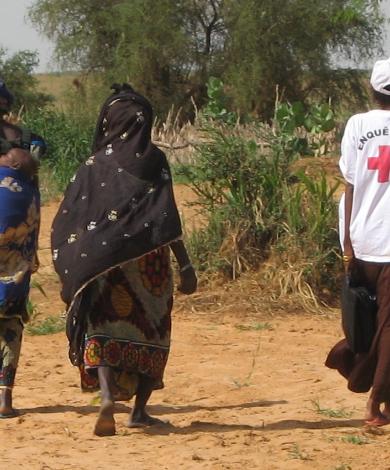Background
This project was undertaken in response to the fact that there was no credible overall assessment of the impact of effectiveness of emergency Supplementary Feeding Programmes (SFPs).
Critics of emergency SFPs have raised questions about how appropriate they are in the absence of an adequate general ration and the relative cost-inefficiency of setting up a separate infrastructure from the general ration programme in order to allocate small quantities of food to vulnerable groups of people. There are also many examples of emergency SFPs that have failed to meet SPHERE targets due to problems such as difficult terrain and therefore poor access, insecurity and staffing problems. Many programmes are also not rigorously evaluated and evaluation findings are rarely published. In response to this, a research project was undertaken by the ENN, with SCUK, to evaluate data from SFPs and subsequently, carry out a literature review of the impact and effectiveness of emergency nutrition interventions.
Project summary
This project involved two studies funded by CIDA on the efficacy and impact of emergency programmes. The first was a retrospective study (2006) and the second a literature review (2011), both of which are described below.
Retrospective Study of Emergency Supplementary Feeding Programmes, ENN and SCUK (2006)
ENN and SCUK undertook research in 2005-6 to evaluate the efficacy and effectiveness of emergency supplementary feeding programmes. The study involved an analysis of 82 programme data sets from 22 countries undertaken by 16 international humanitarian agencies between 2002 and 2005.
The key findings of the study were as follows:
- Inadequate reporting standards were being followed, so that it was difficult to assess the efficacy of programmes without considerable re-analysis of data. Furthermore, various aspects of reporting guidelines needed modification in order to improve understanding of programme performance.
- The majority of programmes (59%) were not achieving SPHERE standards in terms of outcome indicators (mortality, default, recovery, non-response, weight gain and length of stay). A major factor that undermined programme performance was defaulting.
- Impact at population level could not be demonstrated and was unlikely to be significant given low coverage levels.
The main recommendations of the study included:
1) the need to define and implement minimum reporting standards.
2) the need to establish a research agenda specifically to:
- assess the cost-effectiveness of alternative means of addressing mild and moderate malnutrition (e.g. expanded general rations, cash transfers, seasonal blanket supplementary feeding) compared to centre based emergency supplementary feeding
- increase understanding of the role of default in programme performance and strategies to minimise its occurrence
- increase understanding of the causes of non-response and means of addressing the problem
- explore tools for assessing impact of emergency supplementary feeding at population level, e.g. GAM:SAM ratios
- the need to establish institutional mechanisms so that data from emergency SFPs (and other types of intervention to address mild, moderate and severe malnutrition) can be collated and analysed, in order to inform development of appropriate strategies for tackling malnutrition arising from acute crises.
Literature review of peer reviewed publications showing nutritional impact of emergency nutrition programmes (2010-2011)
At the end of 2010 CIDA sanctioned the use of an under-spend to conduct a review of the peer reviewed literature into the nutritional impact of emergency nutrition programmes. This review, which was completed in July 2011, followed on from a similar earlier ENN review published in 2006 (Duffield et al 2006). As with the earlier review, it was found that there is very little published evidence on nutritional impact of emergency programmes. Most of the published studies since 2005 relate to Community Management of Acute Malnutrition programmes (CMAM). There are also a handful of studies on impact of programmes on micronutrient status. The review also found that methodological rigour of studies was in some cases flawed. The review involves re-analysis of some of the CMAM data with surprising findings about weight gain. It also draws a number of conclusions about the lack of research in emergencies and the need for institutional change if we are to increase the evidence base for nutrition programming in emergencies.

